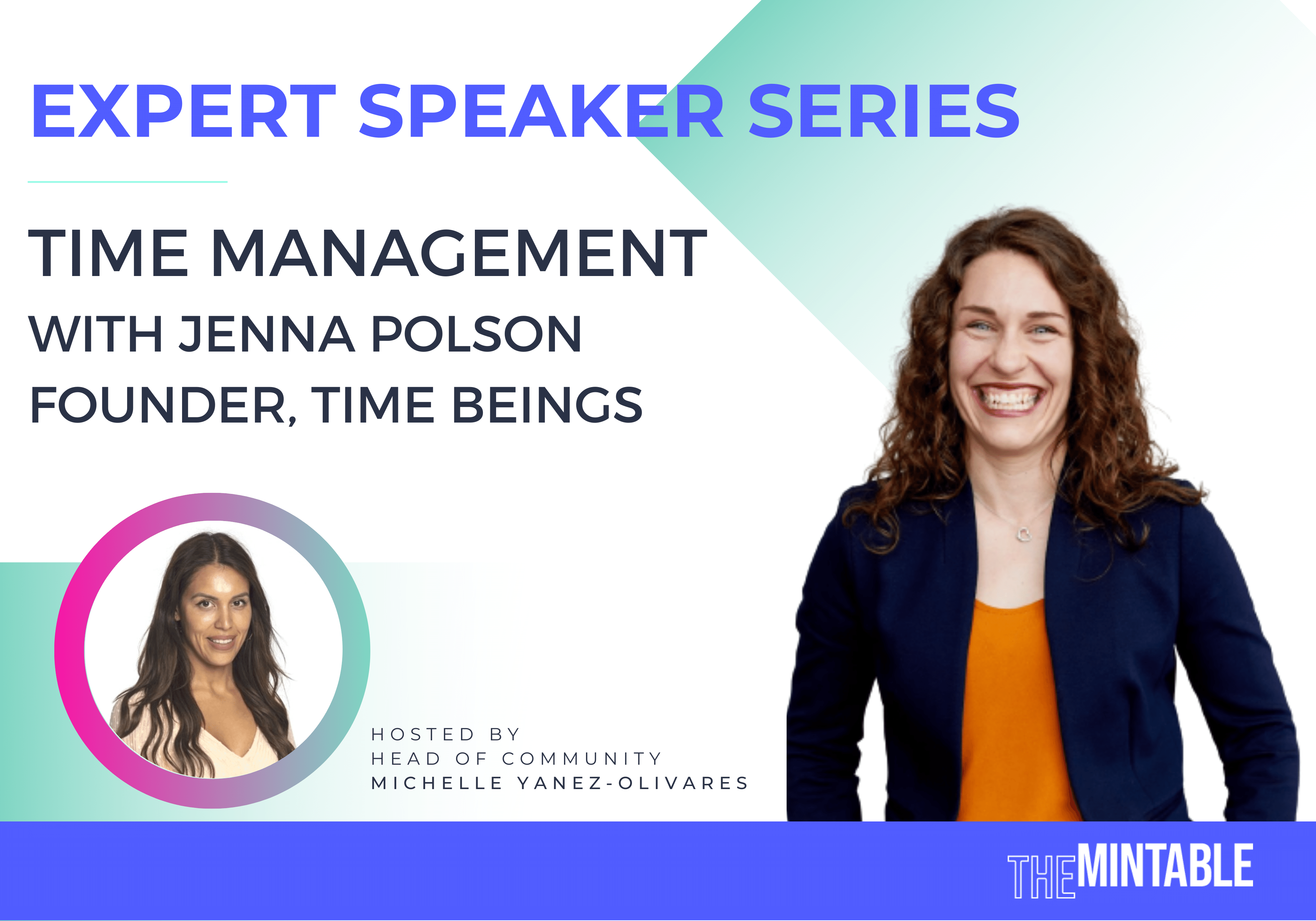
The Mintable recently launched a new membership feature – The Mintable Expert Speaker Series. We’re bringing some incredible speakers to our community who have real-life experience and know how to inspire, inform, and educate managers on what matters most.
This month, we kicked off with a topic that challenges the best of us – time management. And who better to speak on the topic than a time management guru? We invited Jenna Polson, founder of Time Beings, who combines clients’ time data with the latest research to develop highly-targeted time management strategies.
In this interactive session, Jenna walked our managers through ways to balance individual contributor time with management work and maintain a buffer for the unexpected. She also took live Q&A from our managers to answer their burning questions!
It’s impossible to impart all the good community vibes and expertise coming from Jenna, but we’ll share a few lessons learned.
Lesson #1: Set aside time for deep work
One of the major shifts that occurs with the transition from individual contributor to manager is that the demands on your time shift from deep, focus work, to activities like internal meetings and relationship building. But managers still need time to get this work done! To help protect it, Jenna recommends:
- Block off deep work periods in which to prioritize IC work, and schedule these during the times of day where you feel most “on”.
- Be strict with yourself about keeping these blocks protected and write an exception list – that is, the only activities that can take precedence over your deep work time. These might be requests from clients or executives or specific types of asks from your team.
- Talk to your team to create clarity about these blocks and which requests can interrupt this precious time.
Lesson #2: Create contingency blocks where your team is the priority
As a people manager, one of the most important aspects of your role is to be available to your team and provide them with the support they need. But it’s important to recognize the difference between casual, non-urgent requests that can distract from your deep work, and emergency situations that take priority and need to be dealt with ASAP. Jenna suggests:
- For non-urgent requests: block recurring office hours on your calendar where your team knows they can drop in and chat about whatever they need.
- For asks that require an emergency response: let your team know they can book time for something that comes up the same day so they get the support they need.
- Create “secret buffers”: block contingency periods on your calendar that your team doesn’t know exist. These might just look like long lunch breaks, but are available if your team needs to book time to get support during high-priority situations.
Lesson #3. The importance of self-care and taking breaks
With our personal and work lives so deeply integrated, stress from work can spill over, impacting our mental and physical health and our relationships. In order to remain sustainably productive and healthy, Jenna emphasizes the importance of taking care of ourselves and taking breaks – don’t try to kid yourself that you can continue to work at the same level of efficiency uninterrupted. Her top tips:
- Write a break menu of activities you can do during various chunks of time (e.g. 5 minutes, 10 minutes, 30 mins, 1 hour) in the buckets of movement, social, nature.
- Put your menu up somewhere you can see it and refer to it as soon as you feel like your concentration is beginning to lapse.
A huge thank you from The Mintable to Jenna Polson for these incredibly valuable insights, and to our Mintable Managers who joined us for the session and asked the important questions.
Are you an individual manager and want to see how The Mintable can give you the training, tools, and community to succeed? Learn more and join us here.
Are you a founder or HR/People leader and would like to explore how The Mintable can help the managers in your organization thrive? Get your free demo here.